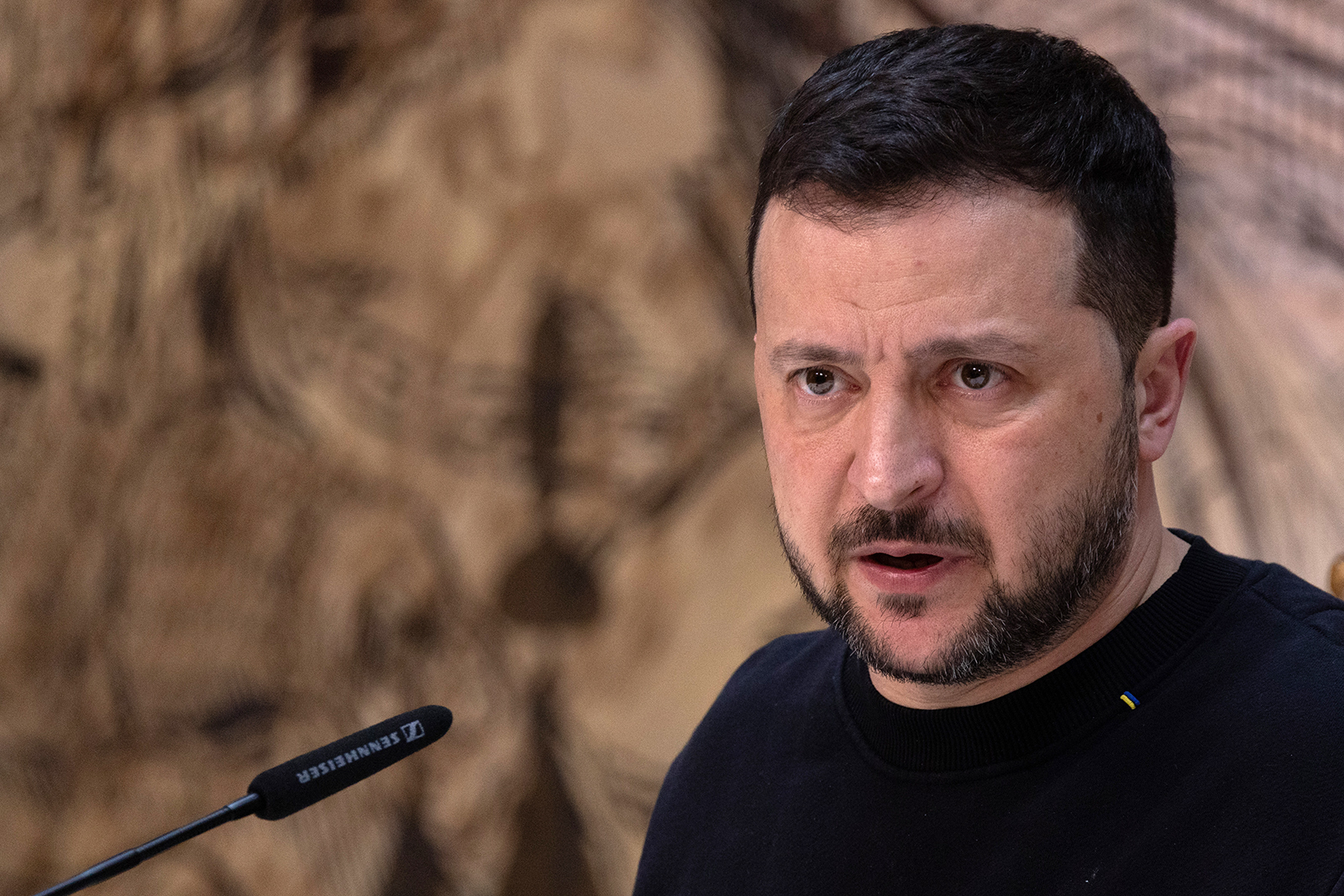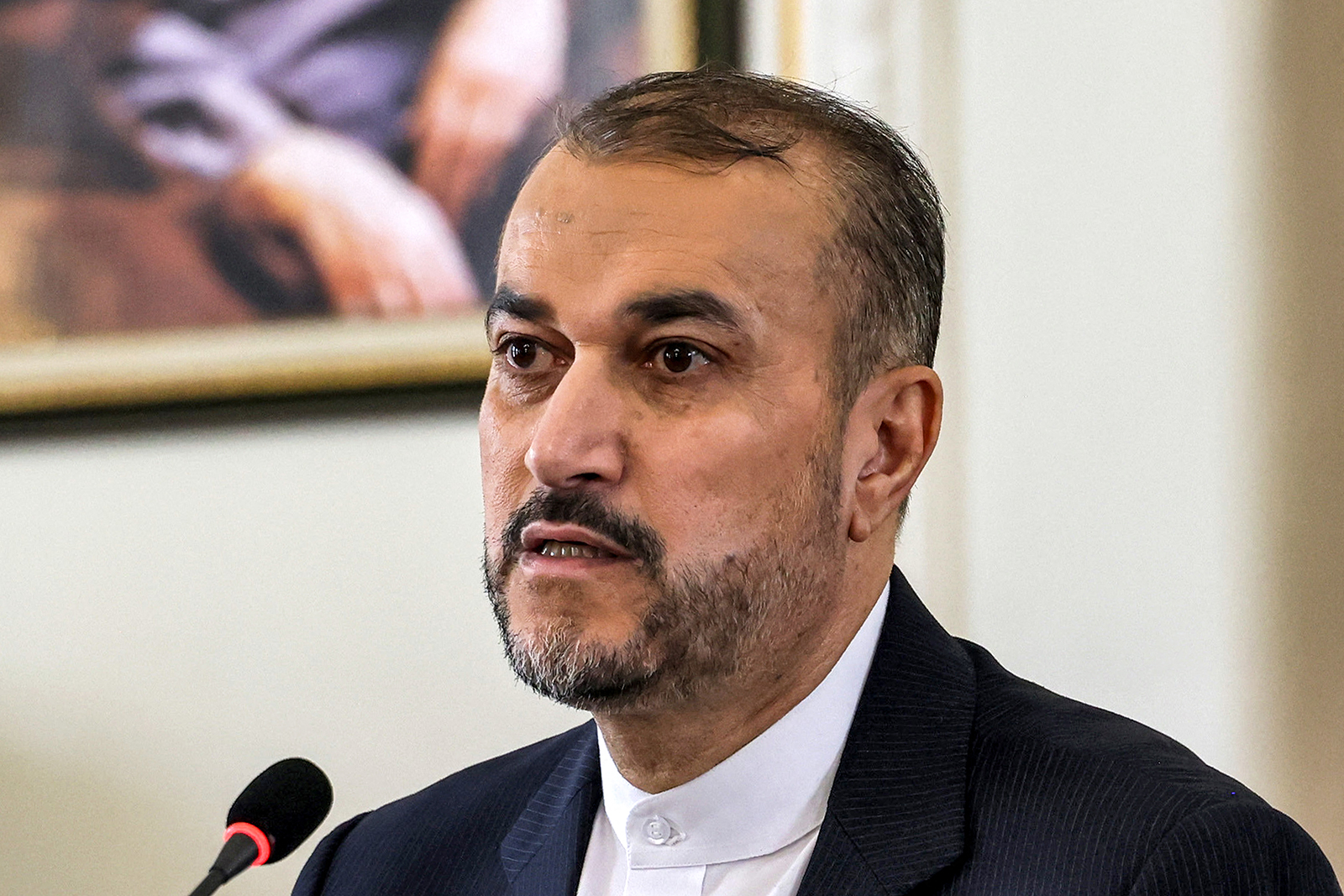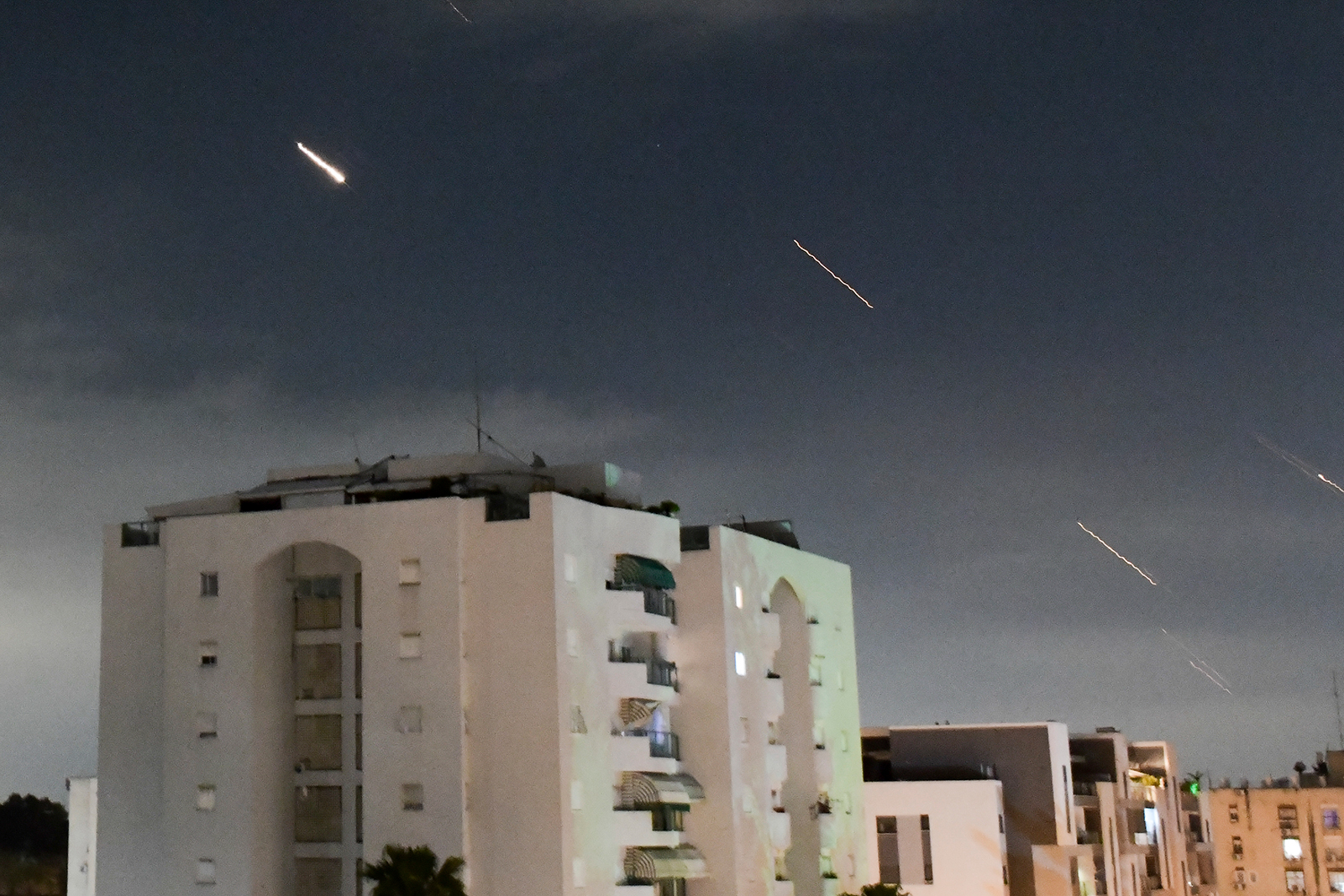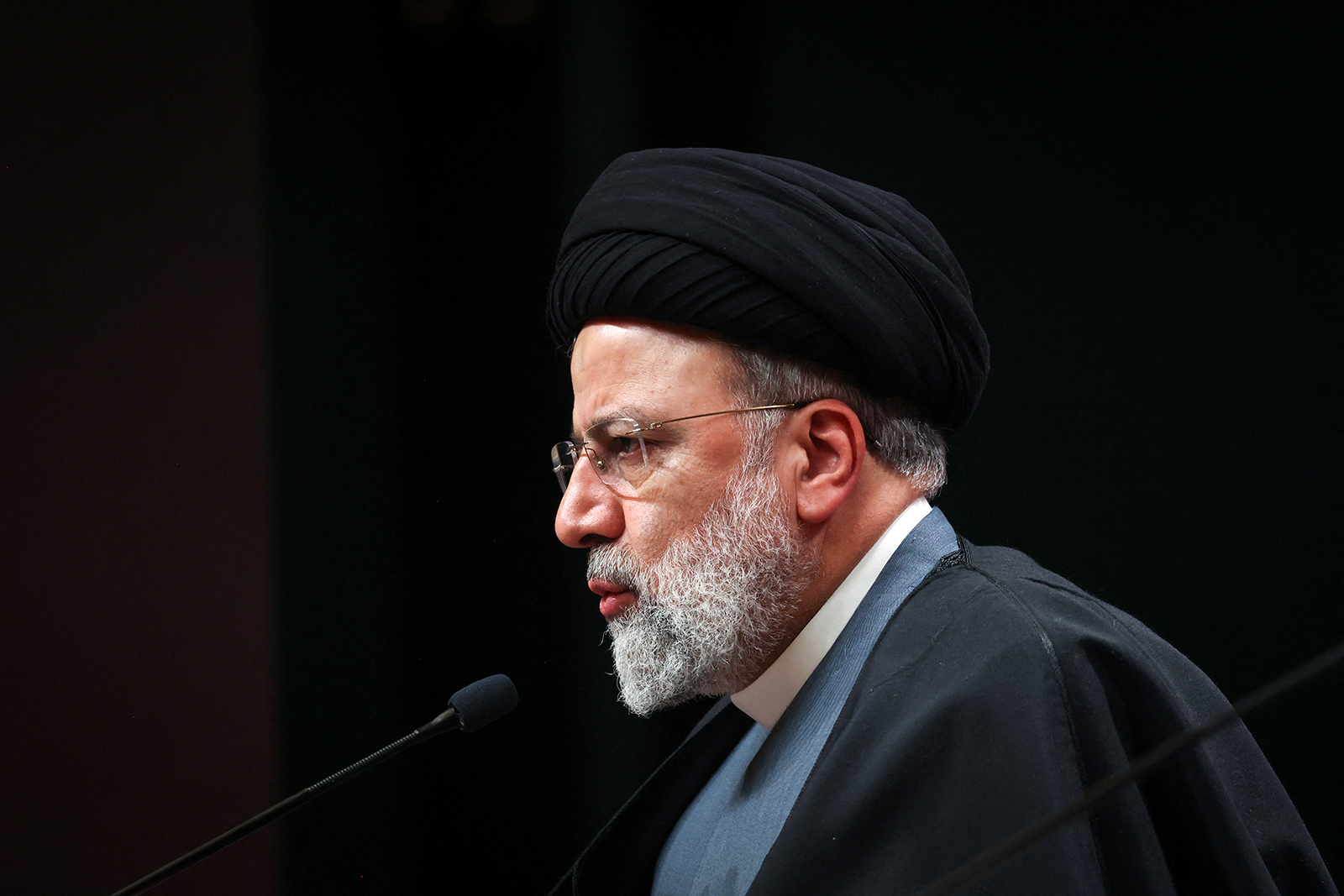
The sound of drones must serve as a "wake-up call to the free world," Ukrainian President Volodymyr Zelensky said Sunday after Iran launched an unprecedented large-scale drone and missile attack at Israel on Saturday night.
"We in Ukraine know very well the horror of similar attacks by Russia," which uses "the same tactics of mass air strikes," Zelensky said in a post on social media. "The sound of Shahed drones, a tool of terror, is the same in the skies over the Middle East and Europe."
"This sound must serve as a wake-up call to the free world, demonstrating that only our unity and resoluteness can save lives and prevent the spread of terror worldwide," he said.
Zelensky went on to say that Iran's actions "threaten the entire region and the world, just as Russia's actions threaten a larger conflict," and that "the obvious collaboration between the two regimes in spreading terror must face a resolute and united response from the world."
"Words do not stop drones and do not intercept missiles. Only tangible assistance does," Zelensky said. "It is critical that the United States Congress make the necessary decisions to strengthen America's allies at this critical time," he added.










